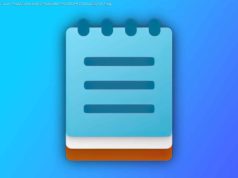How MongoDB provides capabilities which help you do more with less
Sponsored Feature Welcome to the new development team. It’s a lot like the old development team, but with two main differences: managers are asking devs to work in more joined-up ways. They finally understand that they must unlock the data across disparate systems in their organization so that they can use it to whip up new digital services for customers and increase internal efficiencies.
That’s easier said than done, argues Sahir Azam, chief product officer at MongoDB. Developers are crucial in creating those new services, but it’s difficult for already-stretched teams to suddenly become data architects.
« The scarcest resource in modern business is developer talent, » says Azam. « Every organization is going through some sort of digital transformation, and the demand for developers to help with that has taken off. »
This transformation places increasing demands on developers during a period when their skills are hard to find. So with IDC predicting a shortage of 4m developers by 2025 (up from 1.4m in 2021), it’s important to make coders as productive as possible.
One of the biggest hurdles to productivity is data fragmentation. « A lot of these modern applications don’t use just a single database, » Azam explains. Instead, they rely on several technologies from multiple online transaction processing databases of different types through to streaming, analytics and search systems. Historically, those different technologies have been isolated across different platforms that require different development skills to build applications . « A lot of cost goes into operating and managing and duplicating all those environments » Azam adds.
How about a unified data platform?
Over the last few years, MongoDB has moved to solve that problem by bringing in not just more of the things that developers have grown to know and love about the database, but also capabilities that they need as their remit expands and stretches – essentially creating a developer data platform. At its MongoDB World event last June and over the course of the year, the company has since doubled down with a slew of additional new features.
MongoDB hopes that developers will find this platform familiar and comfortable – after all MongoDB is at the heart of it. But they should also be able to expand the use cases that it caters to and the applications it supports. « This has the capability to replace a lot of those disparate data tools » Azam says.
The data platform should also help companies to consolidate vendors, saving in software licenses and support costs, MongoDB believes. It will consolidate organizations’ data footprints for example, make their skill sets more adaptable, and generally help them to do more with less.
Better search and support for time series data
Three years ago, MongoDB launched Atlas Search, an embedded full-text search solution in the Atlas multi-cloud database service. Previously, many organizations would have defaulted to a separate search engine to address their search needs, and then figured out the plumbing between the systems themselves. But the developer data platform integrates the database, search engine, and sync mechanism so that developers can build relevance-based search directly into applications.
Atlas Search is based on Apache Lucene, a popular library underpinning several of the most widely used search engines. Because it’s integrated into the developer data platform, developers can leverage a single query language for both database and search operations. Atlas Search provides a full suite of features to help developers deliver search experiences to their users, including autocomplete, fuzzy matching, relevance scoring, geospatial queries, and faceted search, among others.
Home
United States
USA — software Developers – Make life easier by grabbing more of the data life...






